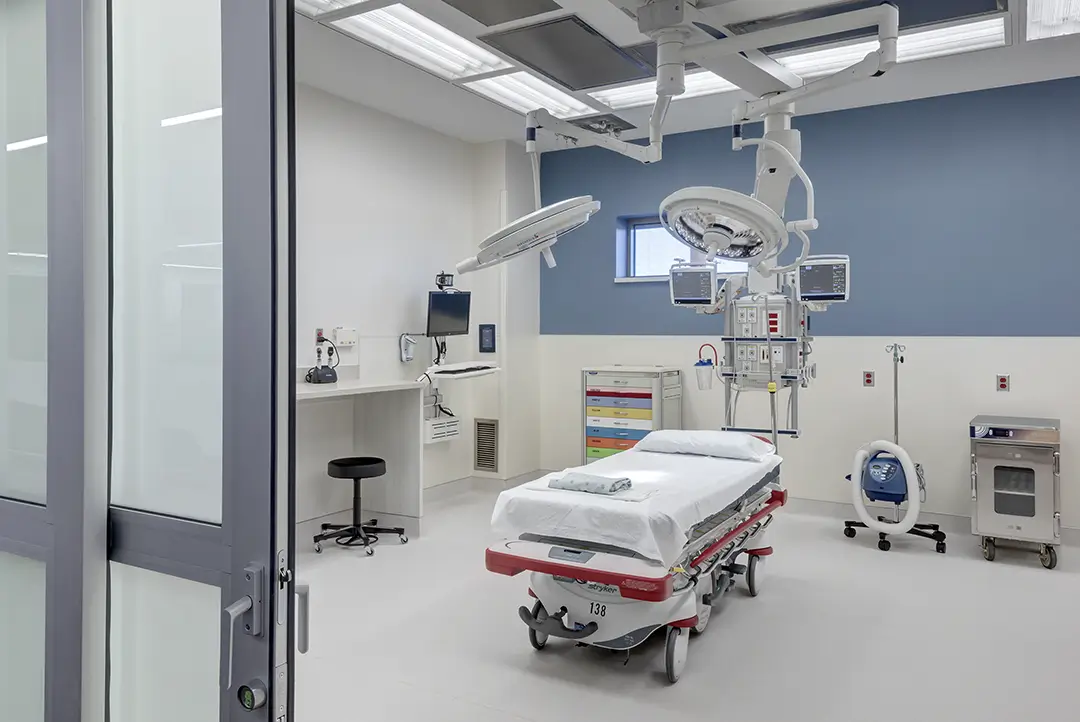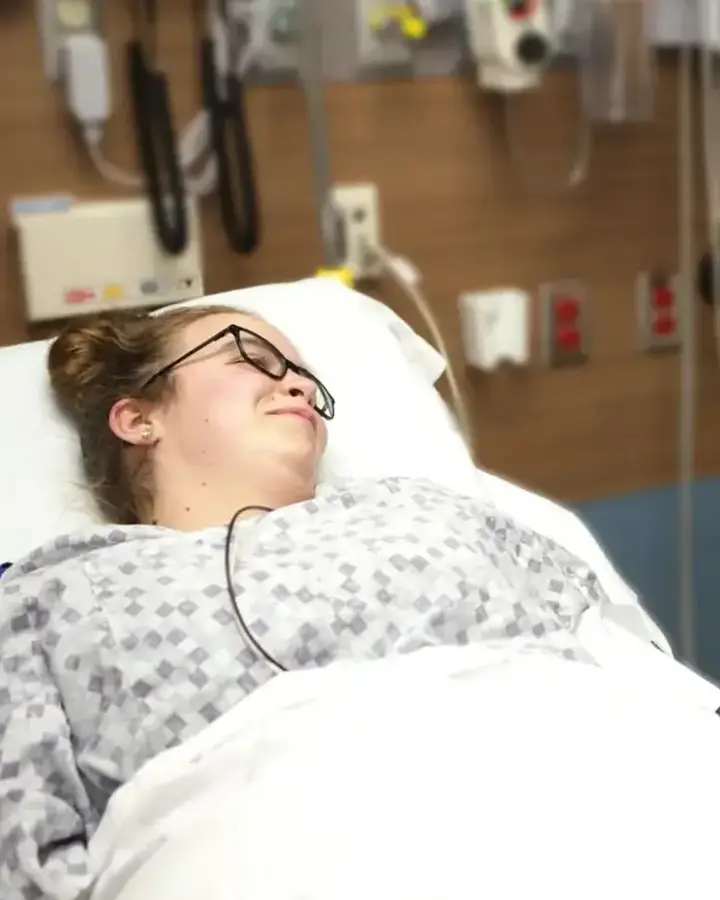Emergency & Trauma
United Regional’s emergency and trauma services provide critical care when every second counts. We deliver comprehensive care as the region’s only full-service health care system and verified Level II Trauma Center.
Choose United Regional for Emergency & Trauma Services
United Regional is the only full-service health care system and Level II trauma center in the region, treating 200–300 patients daily. Our commitment to excellence includes continuous improvements in patient flow, wait times, and care delivery. We proudly serve our community with advanced technology and compassionate expertise.
Unlike free standing emergency rooms, our Emergency Department has the added benefit of being attached directly to the hospital, allowing our patients to be transported beyond triage for continued monitoring.

How can United Regional’s emergency & trauma services help you?
United Regional’s emergency and trauma services address a wide range of urgent medical needs, including:
- Signs of a heart attack lasting longer than two minutes (may include pressure, squeezing or pain in the center of the chest, and/or chest pain with lightheadedness. In women, the symptoms could also include pain between the shoulder blades, pain radiating down the arm and nausea)
- Signs of a stroke (may include weakness or numbness in the face, arm, or leg on one side of the body; sudden dimness or loss of vision, particularly in one eye; loss of speech or trouble talking or understanding speech)
- Loss of consciousness
- Serious traumatic injury (i.e. to the head)
- Bleeding that does not stop after ten minutes of direct pressure
- Instantaneous and severe pain
- Significant shortness of breath
- Allergic reaction to a food, medication, or insect sting, especially if breathing becomes difficult
- Poisoning (Note: If at all possible, first contact the local poison control center (1-800-222-1222) and request immediate applicable advice, since some poisons must be vomited immediately while other poisons must be diluted with water. Acting quickly in this manner can save a life.
- Unexplained prolonged stupor, drowsiness, or disorientation
- Vomiting or coughing up blood
- Severe or persistent vomiting
- Suicidal or homicidal feelings
- Neck stiffness or rash with fever
- Severe Earaches or headaches
Prepare for Emergencies
If you are experiencing a life-threatening emergency, go to the Emergency Department immediately. Do not delay care to gather items. If time allows, bringing the following can help streamline your care and registration:
- List of current prescription medications (name, dosage, frequency)
- List of allergies, chronic conditions, and any over-the-counter medications, vitamins, or supplements
- Identification card for the patient and insurance policy holder
- Medical insurance card
- Pad and pen for notes
- Comfort items for the patient (e.g., blanket, water, small personal items)
- Name and phone number of your primary care physician
Click here to download "A Trip to the Emergency Room," an emergency preparation guide.
If poisoning is suspected, call the local poison control center at 1-800-222-1222. If possible, bring the container or packaging of the substance with you.
Plan Ahead
- Call your primary care physician: If you're unsure whether your condition is an emergency, your doctor can help determine the best course of action based on your medical history.
- Know how to get there: The ER entrance is located at 1600 11th Street, Wichita Falls, TX 76301 — off of Brook Ave, between 10th and 11th streets.
- Understand how patients are seen: Patients are treated based on the severity of their condition — not the order of arrival. Ask the triage nurse if pain relief options like ice packs, pillows, or blankets are available.
- Prepare for the unexpected: If you are brining your child to the ER, make sure caregivers know about any special needs or allergies. If a child may have ingested poison, bring the container with you if possible. Consider packing small toys or activities to keep children occupied during your visit.
Get started; find care today.
Our Approach to Emergency & Trauma
We consider it a privilege to care for our community in times of crisis. Our team continuously works to streamline services, reduce wait times, and deliver high-quality, compassionate care.
Our emergency department integrates virtual nursing powered by care.ai® technology, offering patients in stable condition an additional layer of support through in-room video care. This innovation enhances bedside care and improves patient experience.
Symptom Checker
United Regional is continuously developing new services within MyChart to help you identify a course of action for your symptoms. Click below to see a full list of Symptom Checker options and find the best path to treatment.
Note: The Symptom Checker is not meant to be used in emergency situations.





